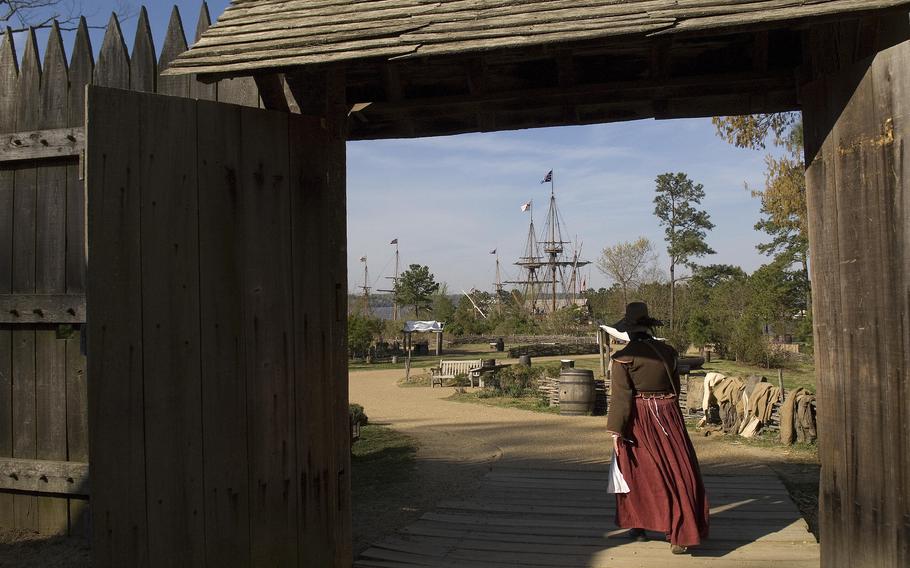
An historical interpreter walks out the gate at James Fort in Jamestown, Virginia, April 6, 2007. (Mannie Garcia, AFP, Getty Images/TNS)
We are accustomed to thinking of the Pilgrims at Plymouth and the neighboring Wampanoag tribe of Massachusetts as the first to celebrate Thanksgiving, but some scholars say that isn’t accurate. Here’s the case for other possibilities.
The Thanksgiving traditions started by the Pilgrims in Massachusetts in 1621 are what most Americans follow. But history shows a celebration to give thanks occurred in Jamestown, Virginia, in 1619. Not only that, 56 years earlier than the Puritan Pilgrims’ gathering, 800 Spanish settlers who founded the city of St. Augustine celebrated a Mass of thanksgiving along with members of the Seloy tribe.
In St. Augustine, according to the National Park Service, it could have been cocido, a stew made with salted pork, garbanzo beans and garlic seasoning, accompanied by hard sea biscuits and red wine. If the Seloy contributed to the meal from their food stores, the menu could have included turkey, venison, gopher tortoise, mullet, drum, sea catfish, corn, beans and squash.
There are other accounts of thanksgiving celebrations predating the Pilgrims by the French settlers in Florida. An early French account dates to 1564, when persecuted Huguenot settlers celebrated in Northern Florida. A year later the French settlement was wiped out by the Spanish.
When the first settlers arrived in Jamestown in April 1607 and raised a cross at Cape Henry, claiming the land for England, they may have had a thanksgiving predating their first known observance in 1619. In that year, Berkeley Hundred was settled, one of a number of plantations granted by the Virginia Co. of London to its stockholders.
Prior to leaving England in September 1619, ship Capt. John Woodlief received instructions from investors that the day his ships arrived in Virginia should be annually remembered as a day of thanksgiving. On Dec. 4, 1619, Woodlief’s ship checked in at Jamestown, the colony’s capital, where a mostly religious thanksgiving ceremony was held, after which the ship sailed up the James River about 30 miles.
The Berkeley Hundred plantation was not around long after a growing number of native Powhatan tribal members went to war and drove the settlers out in March 1622.
©2024 MediaNews Group, Inc.
Visit ocregister.com.
Distributed by Tribune Content Agency, LLC.